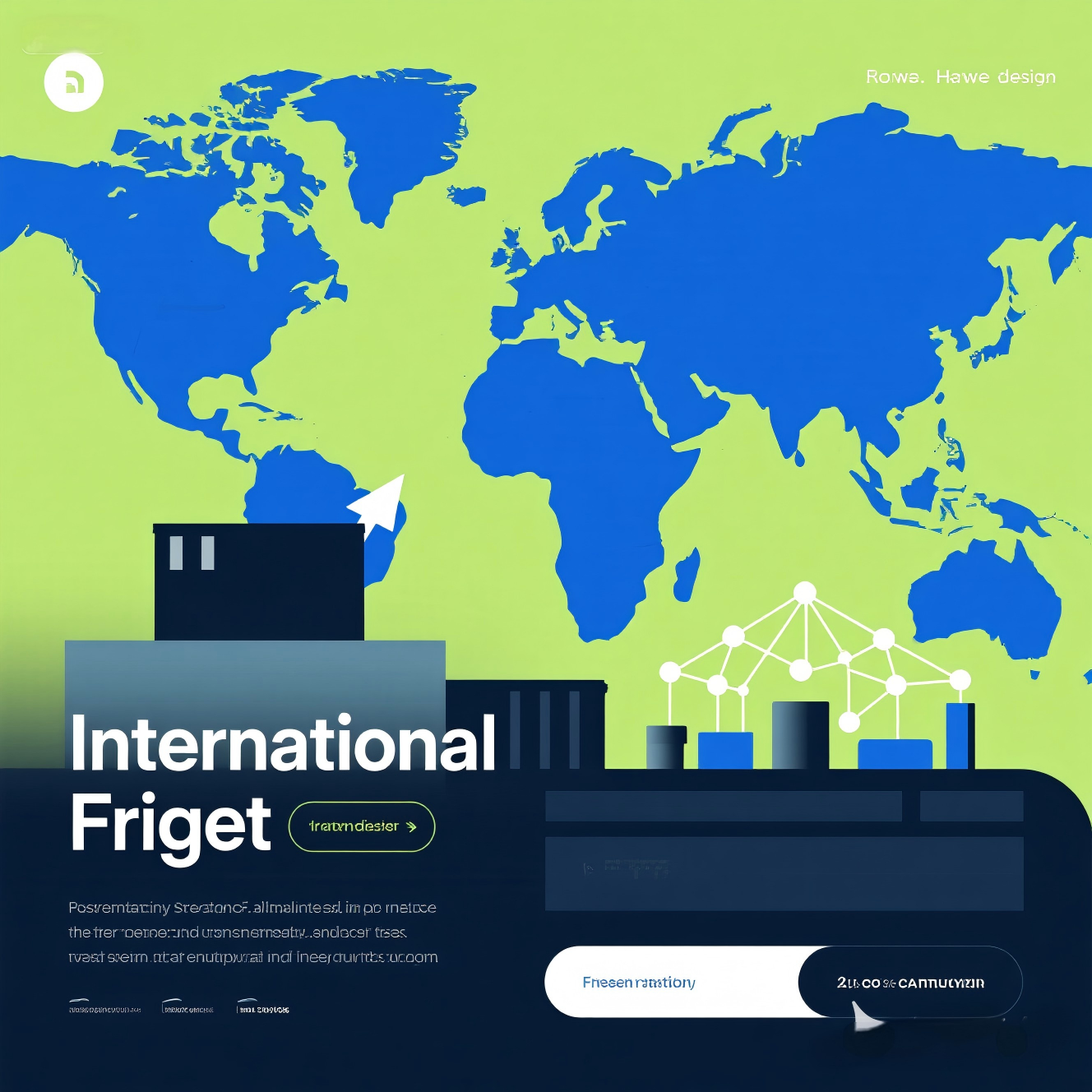The Essential Guide to International Freight Management
In today's interconnected global marketplace, selecting the right international freight partner can make or break your business's success in cross-border trade. Whether you're a seasoned importer or just beginning to explore overseas markets, understanding how to evaluate and choose an international freight forwarder is crucial for ensuring smooth, cost-effective shipping operations.
The complexities of international freight movements extend far beyond simply moving goods from point A to point B. From customs documentation and regulatory compliance to route optimization and cargo insurance, each aspect requires expertise and attention to detail that only experienced professionals can provide.
Core Capabilities of Top-Tier Freight Forwarders
Network Coverage and Global Reach
Leading international freight forwarders maintain extensive networks of partners and agents worldwide. This global presence enables them to handle shipments efficiently across multiple regions and provide reliable service regardless of origin or destination. A robust network also means better rates through established relationships with carriers and the ability to offer alternative routing options when needed.
The most effective forwarders leverage their networks to provide seamless door-to-door services, coordinating smoothly between different modes of transport and handling all necessary documentation throughout the journey. This comprehensive coverage ensures your cargo moves efficiently through every stage of its journey.
Technology and Tracking Systems
Modern international freight operations rely heavily on advanced technology platforms. Superior forwarders invest in state-of-the-art systems that provide real-time tracking, automated documentation processing, and integrated communication channels. These technological capabilities not only enhance visibility but also reduce the risk of errors and delays.
Look for forwarders offering user-friendly online platforms where you can access shipment information, generate reports, and communicate with your service team. The best systems provide proactive alerts about potential issues and allow for quick response to changing circumstances.
Essential Evaluation Criteria
Financial Stability and Insurance Coverage
The financial health of your international freight partner directly impacts their ability to maintain service quality and weather market fluctuations. Investigate their financial stability, years in business, and insurance coverage. A reputable forwarder should carry comprehensive cargo insurance and liability coverage to protect your interests in case of unforeseen events.
Request information about their insurance policies and understand what's covered. The best forwarders will be transparent about their financial standing and willing to provide references from long-term clients.
Industry Expertise and Specialization
Different industries have unique shipping requirements, and specialized expertise can be invaluable. A forwarder with experience in your specific sector will understand the particular challenges and requirements of your cargo. They'll be familiar with relevant regulations, packaging requirements, and industry-specific documentation.
Consider whether the forwarder has handled similar types of cargo and understands the unique aspects of your industry. Their experience can help avoid costly mistakes and ensure compliance with all relevant regulations.
Service Quality Indicators
Communication and Customer Service
Effective communication is crucial in international freight operations. The best forwarders maintain clear, consistent communication channels and provide dedicated account management. They should be responsive to inquiries and proactive in addressing potential issues before they become problems.
Evaluate their communication protocols, response times, and the availability of customer service support. Consider whether they offer after-hours contact options and how they handle emergency situations.
Value-Added Services
Leading international freight forwarders offer more than basic transportation services. Look for providers that can deliver additional value through services like customs brokerage, warehousing, packaging, and distribution. These integrated solutions can streamline your supply chain and reduce the number of partners you need to manage.
Consider whether their value-added services align with your business needs and growth plans. The right mix of services can help optimize your supply chain and reduce overall logistics costs.
Cost Considerations and Pricing Structure
Rate Transparency
Understanding the total cost of international freight services requires careful attention to pricing structures. The best forwarders provide clear, detailed quotes that break down all charges and fees. They should be upfront about potential additional costs and explain their pricing methodology.
Be wary of quotes that seem unusually low, as they may not include all necessary services or might hide costs in fine print. A reputable forwarder will help you understand all cost components and work with you to optimize your shipping spend.
Contract Terms and Flexibility
Review contract terms carefully and understand the commitment required. Quality forwarders offer flexible arrangements that can accommodate changing business needs while maintaining service standards. Consider whether they offer volume discounts, seasonal pricing, or other beneficial terms for regular shippers.
The best partners will work with you to develop pricing structures that align with your business model and provide predictability in your logistics costs.
Frequently Asked Questions
What documentation is typically required for international freight shipments?
International freight shipments generally require commercial invoices, bills of lading, packing lists, certificates of origin, and customs declarations. Depending on the type of goods and destinations, additional documentation such as permits, licenses, or specific certifications may be necessary. A qualified freight forwarder will guide you through all documentation requirements and ensure compliance.
How far in advance should I book international freight services?
For optimal service and rates, it's recommended to book international freight services at least two weeks in advance for standard shipments. During peak seasons or for specialized cargo, booking 3-4 weeks ahead is advisable. This allows time for proper planning, documentation preparation, and securing the best routing options.
What insurance coverage should I expect from my freight forwarder?
A reputable international freight forwarder should offer comprehensive cargo insurance that covers loss, damage, and delay. This typically includes general liability insurance, errors and omissions coverage, and cargo insurance. The specific coverage limits and terms should be clearly outlined in your service agreement, and additional insurance options should be available for high-value or sensitive shipments.


